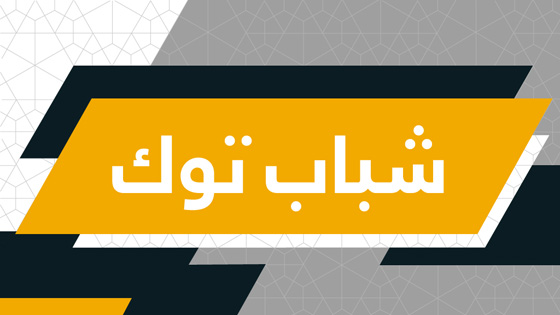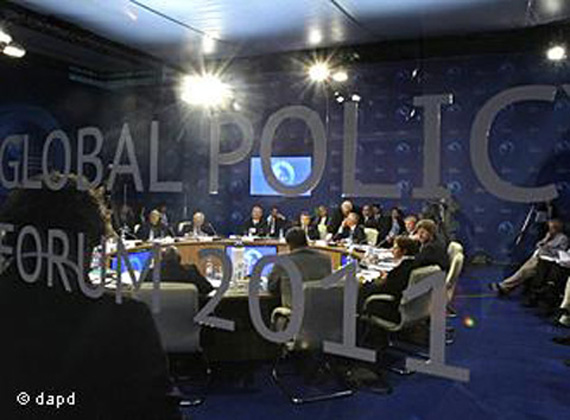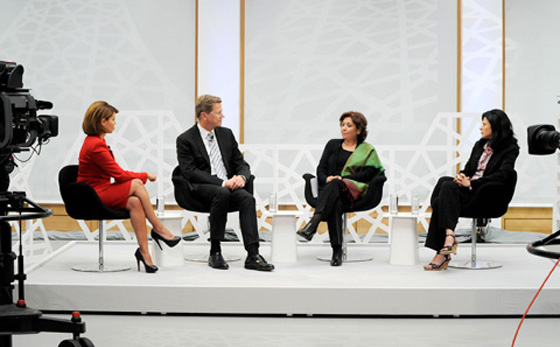Successful start to Shababtalk
 Deutsche Welle and Al Hayah TV have officially started their cooperation tby producing the first episode of Shababtalk in Cairo. The coproduction is one of four new, regionalized talk shows that focus on the Arab world.
Deutsche Welle and Al Hayah TV have officially started their cooperation tby producing the first episode of Shababtalk in Cairo. The coproduction is one of four new, regionalized talk shows that focus on the Arab world.
Shababtalk is a talk show for the future, which brings together young representatives from the democratic movement in Egypt with their German counterparts from youth organizations, political parties and other associations. The 30-minute show will alternate being produced in Berlin and Cairo each week and broadcast on DW-TV ARABIA and Al Hayah TV.
“I am especially pleased that we are able to work with Al Hayah TV on Shababtalk. It brings a new focus to the dialogue on regional issues – and DW-TV and Al Hayah TV are on the forefront of productive cooperation between Europe and North Africa,” says Christoph Lanz, Director of DW-TV. “It is extremely important to exchange information and learn from one another in today’s day and age. With our new talk show, we will be providing a weekly, lively contribution to the transformation in Egypt – and beyond.”
“We aren’t just talking about dialogue – we are making it happen,” says Naser Shrouf, DW’s Head of Distribution for Africa/ Middle East. “Shababtalk shows how the media can get involved in the exchange of information between cultures and examines the ideas that the leaders of tomorrow are bringing to the table.”
This new coproduction is just part of Deutsche Welle’s international strategy. By introducing new, regionalized productions, the broadcaster is helping improve the connection to its viewers around the world.
Along with Shababtalk, DW-TV ARABIA is also introducing a range of new talk shows, each covering a different facet of modern life.
DW expands its reach in the Middle East

From left to right: Naser Shrouf (DW), Mahmoud Mizher (PBC), Sevan Ibrahim-Sauer (DW) and Samah Khader (PBC)
DW and Palestine Public Broadcasting Commission (PBC) signed an agreement of cooperation on Thursday, September 15. Samah Khader, General Director of International Relations, and Mahmoud Mizher, General Director of Administration and Finance, were on hand at DW’s headquarters in Bonn to clarify the details. PBC TV will now be including several DW programs in its line-up, including in good shape, In Focus, Kick off! and Kick off! Countdown, as well as selected episodes of euromaxx. PBC’s radio station will also begin broadcasting some of DW’s radio programming covering topics like science and technology.
This partnership will increase DW’s presence in the Middle East. PBC TV is available in Palestine, but also in several neighboring countries due to its inclusion in the Arabsat and Nilesat networks. Palestine Radio is available in Palestine, Israel, Jordan and parts of Egypt.
Learning by Ear via mobile in Tanzania

DW is now offering its distance-education program Learning by Ear to listeners in Tanzania via mobile phone following a new agreement with Vodacom Tanzania – the country’s largest mobile provider with more than 10 million customers.
By using the “Music Radio” program, Vodacom customers now have access to all of the Learning by Ear episodes as audio on demand – on all types of mobile phones. They just need to call a predetermined Vodacom number to tune in – practically turning their mobile into a remote control. No download is necessary.
Learning by Ear, Deutsche Welle’s multimedia distance-learning program, examines the challenges that young Africans face and engages listeners in an informative and entertaining way. The programming is a lively mix of in-depth reports, radio dramas and feature stories that will provide listeners with an opportunity to get the necessary skills to succeed in Africa today and to discover a whole new world of knowledge. Episodes are currently being broadcast by more than 270 partners in Africa.
DW presents new focus for the Arab world
DW relaunched its channel for the Arab world yesterday, with a new focus on dialogue and programming in Arabic. Audiences from Morocco to Oman can tune in to DW-TV ARABIA for a six-hour block in Arabic – always in primetime. English-language programming will complete the channel’s 24-hour line-up. Up until now, the schedule alternated hourly between Arabic, or German with Arabic subtitles, and English.
This is just a continuation of DW’s strategy of introducing new, regionalized productions to help improve the connection to its viewers around the world.
Along with new Arabic versions of DW’s shows GLOBAL 3000 and Arts.21, the new DW-TV ARABIA also features four new talk shows, each focusing on different facets of society.
- Shababtalk is a co-production with Al Hayah TV, the leading station in Egypt. Young representatives from the democratic movement in Egypt join in on discussions with their German counterparts from youth organizations, political parties and other associations.
- On the Pulse brings Arab and German experts together to discuss issues related to democratization, politics, economics, the role of the government, justice and religion.
- Talking to the Press is a roundtable discussion with German and European editors-in-chief and their Arab colleagues.
- Guest of the Week offers the chance for public figures to come into the studio to discuss current developments in the Arab World.
DW also launched its new YouTube channel for Arabic yesterday, making its Arabic content available online to viewers around the world.
Talking policy in Yaroslavi
 DW’s Ingo Mannteufel recently took part at this year’s Global Policy Forum in Yaroslavi, Russia. The head of DW’s Russian Service spoke about the role of the Internet in conflict situations and also moderated a panel about “Global Security in Local Conflicts”. The Forum took place from September 7-8 and focused on “The Modern State in the Age of Social Diversity”. Politicians and experts from around the world participated in the conference, which welcomed Russia’s President Dmitry Medvedev and the President of Turkey Abdullah Gül as keynote speakers.
DW’s Ingo Mannteufel recently took part at this year’s Global Policy Forum in Yaroslavi, Russia. The head of DW’s Russian Service spoke about the role of the Internet in conflict situations and also moderated a panel about “Global Security in Local Conflicts”. The Forum took place from September 7-8 and focused on “The Modern State in the Age of Social Diversity”. Politicians and experts from around the world participated in the conference, which welcomed Russia’s President Dmitry Medvedev and the President of Turkey Abdullah Gül as keynote speakers.
Mannteufel spoke about “Global Media 2.0 – Role of the Internet for Global Security and Local Conflicts”, especially addressing the challenges facing the global media in the Internet era.









Feedback